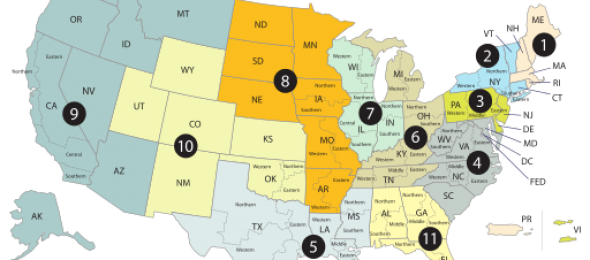On Monday, the Ninth Circuit Court of Appeals ruled in a published opinion that a class action waiver included in an employer’s mandatory arbitration agreement violated the National Labor Relations Act (“NLRA”) and California law. In Morris v. Ernst & Young, No. 13-16599 (9th Cir., August 22, 2016), two individuals who were employed by an accounting firm, Ernst & Young, were required to sign a collective action waiver as a condition of employment. The waiver stated each worker must engage in individual and separate arbitration proceedings with the firm in the event of an employment dispute.
After working at the company for a period of time, the individuals eventually brought a class action lawsuit against Ernst & Young over the firm’s purported misclassification of the workers. According to the workers, the firm intentionally misclassified them in an effort to deny them overtime pay in violation of the Fair Labor Standards Act. In response to the lawsuit, Ernst & Young filed a motion to compel arbitration. The district court sided with the firm, ordered the workers to engage in individual arbitral proceedings, and dismissed the case.
On appeal, a divided three-member panel of the Ninth Circuit stated:
This case turns on a well-established principle: employees have the right to pursue work-related legal claims together. 29 U.S.C. § 157; Eastex, Inc. v. NLRB, 437 U.S. 556, 566 (1978). Concerted activity—the right of employees to act together—is the essential, substantive right established by the NLRA. 29 U.S.C. § 157. Ernst & Young interfered with that right by requiring its employees to resolve all of their legal claims in “separate proceedings.” Accordingly, the concerted action waiver violates the NLRA and cannot be enforced.
In its opinion, the appellate court stressed that the NLRA affords substantive rights to workers. The court added that United States Supreme Court arbitration jurisprudence states substantive rights cannot be waived in arbitration agreements. The Ninth Circuit also quoted the Seventh Circuit’s recent holding on the matter:
The FAA does not mandate the enforcement of contract terms that waive substantive federal rights. Thus, when an arbitration contract professes the waiver of a substantive federal right, the FAA’s saving clause prevents a conflict between the statutes by causing the FAA’s enforcement mandate to yield. See Epic Sys., 823 F.3d at 1159 (“Because the NLRA renders [the defendant’s] arbitration provision illegal, the FAA does not mandate its enforcement.”).
One member of the Ninth Circuit panel dissented from the majority’s opinion:
Judge Ikuta dissented because she believed that the majority’s opinion violated the Federal Arbitration Act’s command to enforce arbitration agreements according to their terms, was directly contrary to Supreme Court precedent, and was on the wrong side of a circuit split. Judge Ikuta concluded that § 7 of the National Labor Relations Act did not prevent the collective action waiver at issue here, and would hold that the employee’s contract must be enforced according to its terms.
For those keeping score, the Seventh and Ninth Circuits have now held employment arbitration agreements that contain class and collective action waivers violate the NLRA while the Second, Fifth, Eighth, and Eleventh Circuits have stated such agreements are both lawful and enforceable under the Federal Arbitration Act.
Photo credit: PDF by the US Government, converted using Texterity’s FreeSVG, tweaked using en:Inkscape by Tintazul [CC BY-SA 2.5 or Public domain], via Wikimedia Commons














